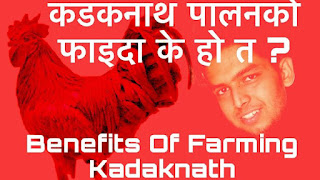Are We Aware Of What Dairy Animals Suffers?
A total of 570 million dairy farms by 150 million farmers are serving about 1 billion people worldwide nowadays. In particular, there are about 133
million holdings keeping dairy cattle; 28.5 million keeping buffaloes; 41 and 19 million
keeping goats and sheep respectively. Dairy Animals are popular assets are among rural peoples.
Dairy farming is continuously standing with millions of lives
Milk and dairy products are nutrient dense foods supplying energy and significant amounts of protein and micronutrients
including calcium, magnesium, selenium, riboflavin, vitamins B5 and B12, which are
essential to reduce hunger and malnutrition particularly amongst the most vulnerable
(e.g. pregnant women and children).
Dairy cows are directly owned by women in 25% of cattle keeping
households , which implies that over 37 million of dairy farms are female-headed. Women, however, regardless of their owning milk animals, play a major role in dairy
production systems: they often feed the animals; milk them; clean the animals and their
stall; compost manure and are often responsible for breeding, health and the sale of milk. Simply speaking, Milk production is supporting Women Empowerment.
Processing activities, from pasteurization to
yogurt manufacturing, not only add value to raw milk but also create jobs. Employment
is a major pathway out of poverty and job creation is a global challenge: 470 million jobs are needed globally for new entrants to the labor market between 2016 and 2030. Evidence from Bangladesh, Kenya and Ghana suggests that for every 100 litres of milk
traded between 1.2 and 5.7 full time jobs are created.
While intake of dairy products is part
of a healthy diet, zoonotic and food-borne diseases originating from dairy animals can be
harmful for people.
The global
dairy herd is converting materials that are not edible to humans into high quality protein
and essential micro-nutrients. The global
dairy herd consumes about 2.5 billion tons of dry matter feed annually, about 40% of the
global livestock feed intake. 77% of this is grass and straws.
The dairy herd contributes to greenhouse gas emissions, especially through
rumination. Dairy animals produce around 3.1 gigatons of CO2 equivalent per year or
40% of global livestock emissions, with dairy cattle accounting for 75% of it. Enteric
methane represent 51% to 67% of the herd’s emissions, depending on the species and
production system.
Knowing this all .. are we unknown of what they are going through?,
Cows in the dairy industry suffer their entire lives. From the moment they enter this world they are treated like commodities.
Just like humans, cows only produce milk for their offspring. Therefore, they are forcefully impregnated every year. A female and her offspring are forced through a cycle of cruelty that ends with their slaughter.

Much like humans, cows have strong maternal instincts but a mother’s bond with her calf has no place on factory dairy farms. Shortly after birth, calves are dragged away from their mother never to be seen again. A cow will have to go through this painful process every year of her life. The milk she produces for her calf is instead taken from her and sold to consumers.

After being torn away from their mothers, calves will spend much of their lives in extreme confinement. In fact, most will spend the first 2 to 3 months of life confined in lonely barren hutches, fed a diet of milk replacer while humans drink the milk intended for them.
Painful Manipulations are operated ..
Like Branding
Dehorning
Tail Docking
Cows in the dairy industry face the same fate as those in the meat industry. They are killed when their milk production declines. No cow is allowed to live out their natural lifespan of up to 25 years. In fact, 20% of the beef sold in stores comes from cows who were exploited by the dairy industry.
After being transported long distances cows are forced into stun boxes. Inside these chambers, they are shot in the head, a process meant to render them unconscious. However, many are still conscious when they have their throats slit.
References:,





















